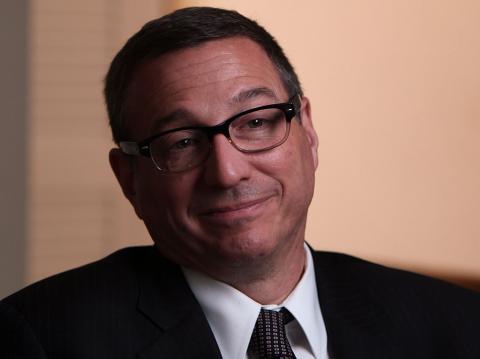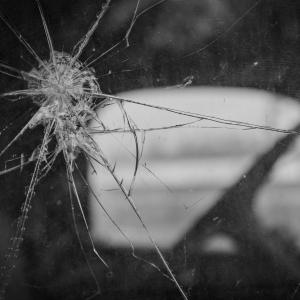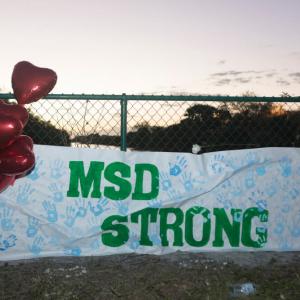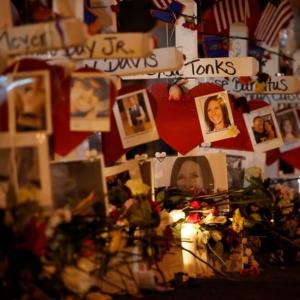
The Rev. Dr. Rob Schenck is an ordained evangelical minister, author of Costly Grace: An Evangelical Minister’s Rediscovery of Faith, Hope and Love (HarperCollins), and president of the Dietrich Bonhoeffer Institute, located in Washington, D.C. He holds a Doctor of Ministry from Faith Evangelical Seminary in Tacoma, Washington and is a senior fellow of The Centre for the Study of Law and Public Policy at Oxford. Rev. Schenck is the subject of the Emmy Award-winning documentary, The Armor of Light, and a member of the leadership team for Survivor Sunday, a nationwide day of remembrance for the 30,000 lives lost annually to gun violence sponsored by Prayers & Action. He is also the author of Costly Grace: An Evangelical Minister’s Rediscovery of Faith, Hope, and Love (June 5, 2018).
Posts By This Author
For 30 Years, I Preached that Abortion was Murder
FOR 30 YEARS, I held an uncompromising conviction that abortion was murder. I preached against “child-killing,” suffered multiple arrests for blockading clinics, and had pro-choice groups successfully sue me. I led a national anti-abortion organization and directed the only large-scale annual pro-life event held in the U.S. Capitol. I personally appealed to Supreme Court justices to overturn Roe v. Wade.
Today, I no longer have these positions, and I did not applaud the recent reversal of Roe. I remain an evangelical by belief, but I now call myself a “pro-choice pro-lifer.” I have concluded that legislators and judges are not the people to try to resolve this complex, moral, social, and health-related question. Even among religions, there is no consensus on what constitutes permissible or impermissible abortion. Moreover, each woman’s experience with pregnancy is unique. Therefore, there can be no universal mandate forcing her to continue her pregnancy.
My transformation from an absolute to a nuanced position on abortion proceeded slowly and fitfully. Many exasperated old pro-life movement friends ask, “Whatever happened to you?” The short answer: empathetic listening. There came a moment when I realized I was doing all the talking and no listening on this subject. For nearly three decades, I had lived isolated in a fantasy where I presumed everything would work how it was supposed to, so I questioned nothing. In this fictitious pro-life world, all a woman in an unwelcomed pregnancy needed was to call out for help. In response, pro-life people would instantly help her, offering free housing, parenting supplies, medical care, babysitting, and, should she so choose, adoption. “With so much support,” I asked my audiences rhetorically, “why would anyone choose abortion?” I didn’t want answers.
Wearing a Mask Is Biblical
The apostle Paul summarizes the practical implications of a Christ-like ethic toward others: “Do nothing from selfish ambition or conceit, but in humility count others more significant than yourselves. Let each of you look not only to his own interests, but also to the interests of others” (Philippians 2:3-4 ESV).
Rev. Rob Schenck: Why I Wasn't at the March for Life
With the campaign of Donald Trump, the movement I once devoted my life to was swallowed up by a political leviathan. In Trump’s craven pursuit of power, prestige, and the adulation of the crowds, the once poster boy for a lifestyle of pleasure-seeking and self-absorption that required legalized abortion for its own preservation, offered a deal to pro-lifers: Sell out to me and I’ll sell out to you. You’ll get everything you want if you give me everything I want.
One Year After Parkland, Gun Reform Is Still Needed. Will Evangelicals Take Moral Action?
This week, scores of people will once again experience the grief of missing loved ones who were cut down by a deranged young man with multiple deadly weapons in the high school he shared with his victims. The Parkland, Fla. mass shooting at Marjory Stoneman Douglas High School, which killed 17 people and injured 17, joins the 2012 Sandy Hook Elementary School shooting, which wiped out a classroom of precious children, as two of the most horrific moments in American history. The irony that the Parkland slaughter was on Valentine’s Day only increases the suffering. While many will celebrate having and enjoying their loved ones in their lives, the Marjory Stoneman Douglas High School survivors will only feel afresh a terrible vacuum.
One Year After The Las Vegas Mass Shooting, What Has Changed?
It is gut-wrenching to look at their faces — 58 of them. They were young, old, men, women, single, married, parents, and grandparents. From all over the country and from Canada, they had one thing in common: they were fans of country music. One year ago, on Oct. 1, they made their way to an open field in Las Vegas where, in the midst of their revelry, they were plunged into terror and cut down by bullets — more than 1100 — fired from 32 stories above their heads.
Should Christians Own Guns?

Andy Dean Photography / Shutterstock
SITTING AT A DINING-ROOM TABLE full of fellow evangelical pastors, I asked how many were “carrying” (a euphemism for being armed with a concealed handgun). They all raised their hands. Then I asked, “What determines when you draw your gun and prepare to shoot another human being?” There was awkward body language and mumbling. After a few seconds passed, one older man said, “I’ll tell you what determines whether I draw the gun or not. It’s the man’s skin color.”
I was left speechless by the pastor’s jarring, blatant racism. Still, as respectfully as possible, I asked him to please clarify what he meant.
“Well, we got a big city nearby, and, you know, the black people there are always killin’ people. Now, if a colored man comes into this county, I know he means trouble because he knows he doesn’t belong here. That makes him more dangerous than a white man. That’s why I’d pull my gun.”
The man who was speaking, and the others nodding their heads in agreement, are my colleagues. I am one of them when it comes to a statement of faith—but not when it comes to race and guns.
‘Surrendering my life to Christ’
When I speak of evangelicals, I am speaking of my own. I surrendered my life to Jesus Christ as my lord and savior 42 years ago. I attended an evangelical Bible college and seminary and was ordained as an evangelical minister. I poured myself into evangelism and disciple-making. Today I’m a missionary to top government officials in Washington, D.C., and I chair one of the oldest associations of evangelical clergy in the country. I love my Lord, I love his people, and I love doing God’s work.




